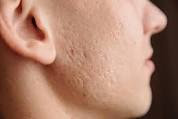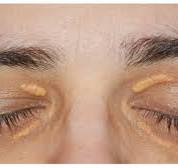Shedding Light on Skin Cancer: Causes, Symptoms, and Treatment Options
Introduction:
Causes of Skin Cancer:
1.
UV Radiation Exposure: Prolonged
exposure to UV radiation from sunlight or artificial sources, such as tanning
beds, is the primary risk factor for skin cancer. UV radiation damages the DNA
in skin cells, leading to mutations that can trigger uncontrolled cell growth
and cancer development over time.
2.
Fair Skin and Light Eye/Hair
Color: Individuals with fair skin, light-colored eyes, and blonde or red hair
are at higher risk of developing skin cancer due to lower levels of melanin,
the pigment that provides natural protection against UV radiation. People with
lighter skin tones are more susceptible to sunburn and UV-induced skin damage.
3.
History of Sunburns: Severe
sunburns, particularly during childhood or adolescence, increase the risk of
developing skin cancer later in life. Sunburns cause significant DNA damage to
skin cells and can predispose individuals to the development of melanoma, the
deadliest form of skin cancer.
4.
Family History: A family history
of skin cancer, particularly melanoma, can increase an individual's risk of
developing the disease. Inherited genetic mutations associated with skin cancer
susceptibility, such as mutations in the CDKN2A and CDK4 genes, can
significantly influence an individual's risk profile.
5.
Immunosuppression:
Immunosuppressed individuals, such as organ transplant recipients or those
living with HIV/AIDS, have a higher risk of developing skin cancer due to
compromised immune function. A weakened immune system is less effective at
recognizing and eliminating abnormal cells, allowing cancerous growths to
proliferate unchecked.
Symptoms of Skin Cancer:
1.
Changes in Skin Moles: The
appearance of new moles or changes in existing moles, such as asymmetry,
irregular borders, uneven coloration, or enlargement, may indicate the presence
of skin cancer. Pay attention to any moles that grow, bleed, itch, or become
painful over time.
2.
Skin Lesions or Sores: Skin
cancer may present as non-healing sores, ulcers, or lesions that persist for
weeks or months without resolution. These lesions may be tender, itchy, or
scaly and can vary in size, shape, and color.
3.
Red or Pink Patches: Red or pink
patches of skin that persist or increase in size may be indicative of basal
cell carcinoma or squamous cell carcinoma, two common types of non-melanoma
skin cancer. These patches may be flat or raised and may develop a crust or
scab over time.
4.
Dark Spots or Streaks: Dark
spots, streaks, or discoloration on the skin, particularly in areas exposed to
sunlight, may be signs of melanoma, the deadliest form of skin cancer. These
spots may be black, brown, blue, or multicolored and may change in size or
appearance over time.
5.
Changes in Nail Beds: Skin
cancer can also affect the nail beds, causing changes in nail color, texture,
or shape. Look for discoloration, dark streaks, or unusual growths under the
nails, as these may indicate the presence of melanoma or other types of skin
cancer.
Treatment Options for Skin Cancer:
1.
Surgical Excision: Surgical
excision involves removing the cancerous lesion and a margin of healthy tissue
surrounding it to ensure complete removal of cancer cells. This procedure is
commonly used for non-melanoma skin cancers, such as basal cell carcinoma and
squamous cell carcinoma.
2.
Mohs Micrographic Surgery: Mohs
micrographic surgery is a specialized surgical technique used to treat certain
types of skin cancer, particularly those with high recurrence rates or located
in cosmetically sensitive areas. During Mohs surgery, thin layers of tissue are
sequentially removed and examined under a microscope until no cancer cells are
detected.
3.
Radiation Therapy: Radiation
therapy uses high-energy X-rays or other forms of radiation to target and
destroy cancer cells while minimizing damage to surrounding healthy tissue.
Radiation therapy may be recommended for individuals with non-surgical candidates
or for cancers located in areas where surgical removal is challenging.
4.
Topical Medications: Topical
medications, such as imiquimod, 5-fluorouracil (5-FU), and ingenol mebutate,
are applied directly to the skin to treat certain types of non-melanoma skin
cancers, including superficial basal cell carcinoma and actinic keratoses.
These medications work by stimulating the immune system or inducing cell death
in cancerous cells.
5. Targeted Therapy and Immunotherapy: Targeted therapy and immunotherapy are systemic treatment approaches that target specific molecular pathways or harness the body's immune system to attack cancer cells. These advanced treatment modalities may be used for advanced or metastatic skin cancers, such as melanoma, that are resistant to conventional therapies.
Conclusion:
Skin cancer is a serious and potentially life-threatening condition characterized by the abnormal growth of skin cells. Early detection and prompt treatment are essential for achieving favorable outcomes and minimizing the risk of complications. By understanding the underlying causes of skin cancer, recognizing common symptoms, and seeking timely medical evaluation and intervention, individuals can take proactive steps towards protecting their skin health and reducing their risk of developing skin cancer. It's crucial to practice sun safety measures, perform regular skin self-examinations, and consult with a dermatologist or healthcare professional for personalized risk assessment and skin cancer screening recommendations. With proper care, vigilance, and access to effective treatment options, individuals can empower themselves to maintain healthier skin and reduce their risk of skin cancer-related morbidity and mortality.
Call now on our Mobile 8669086098 for booking an appointment
To know more about Dr. Amey Kelkar visit our website Derma Solutions




Comments
Post a Comment